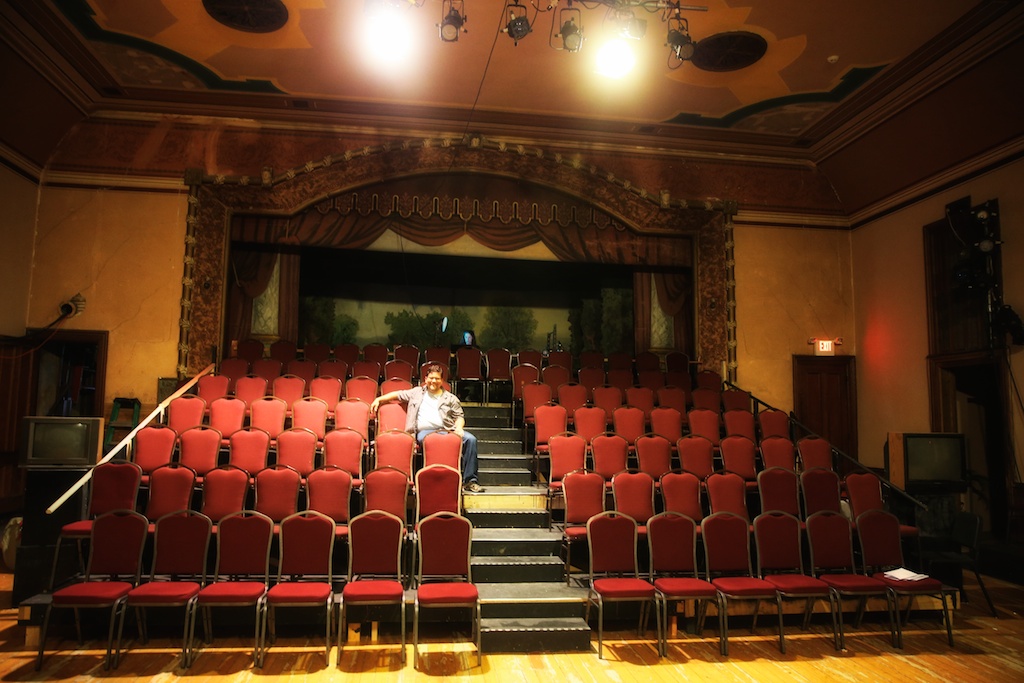
In order for artists and arts organizations to survive, we need to immediately start doing something we do so well – improvising.
I run a small but vibrant professional community arts center in upstate New York, about three and a half hours north of the city. Our budget is just under $500K and in a good year we are continually fundraising to do what we do. We run on very tight margins. It’s a struggle. We are now in thefight for our lives. Since last week we’ve been working to offer online performances, workshops and events, as a way to continue to serve our region and stay relevant, so that we can come roaring back when this is all over. Our work is all about creating community through the arts, and our community needs us now more than ever.
Two weeks ago I reached out to the prominent playwright of a recent show we produced, to ask his permission to release the production online for our audiences to enjoy from home. He immediately replied with his enthusiasm and offered these rights. Since then I’ve pursued and received consent from the rest of the artists in the production. But when I reached out to the Actors Equity Association (the stage actors’ union) to request awaiver for the two members who were in the show, the union said they are not planning on granting any such waivers.
Why would Equity stand in the way of sharing their members’ work with a worldwide audience, when the artists themselves have consented? This may have made sense two weeks ago – but two weeks ago is a world away. It’s the kind of thinking that may quickly make institutions like the AEA irrelevant. I don’t know if my tiny theater will ever afford to employ AEA members again under the current guidelines. A theater near ours – prior to the outbreak – recently announced their breaking of their full union contract, because of its costs. My previous employer, Arena Stage in Washington, DC, one of the oldest resident theater companies, just announced, along with hundreds of other theaters, that they’ve canceled the rest of their season and closed their facilities for now. Millions of dollars will be lost. Existing deficits will grow deeper and deeper. Current contracts with all unions will need to be entirely renegotiated – or there won’t be any organizations left to employ artists.
Don’t get me wrong – we need to also protect artists’ work and their rights, as always. I’m not saying we should say “all bets are off” and treat this like the Wild West. The recent call from some organizations for playwrights to return their fees is abhorrent. But we can’t play by last week’s playbook. The way work is made – and how it’s shared – needs to change, and has needed to change for a long time. We need to support artists in every way we can, while also looking for new ways to pursue our missions and reach audiences where they are, which is now literally separate and at home. We need to recognize that the past levers of power are no longer reliable. We are all struggling to imagine life inside these newcircumstances and this new economy for the next few months, let alone the next few years. The need for art is greater than ever. Human connection, creativity and communion are as necessary for life as food and water. While we are figuring how to fulfill these needs in the age of COVID-19, we need to be generous with our work – and quick about it – or we risk becoming completely irrelevant.
– David A. Snider is the Executive & Artistic Director of Hubbard Hall Center for the Arts and Education in Cambridge, NY, a Lecturer at Skidmore College, holds his MFA from the Tisch School of the Arts at NYU and is currently writing a book about managing the arts from an artist’s perspective, titled Purpose.
This article was first published in The Bennington Banner on April 2, 2020 here.